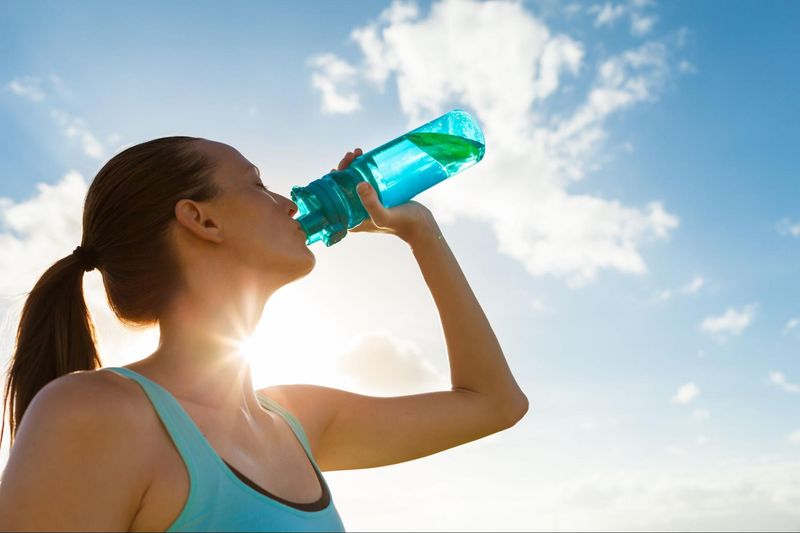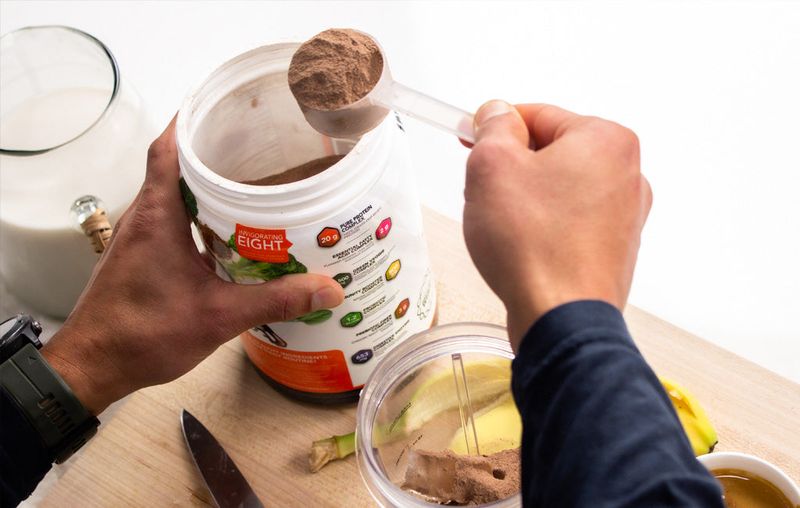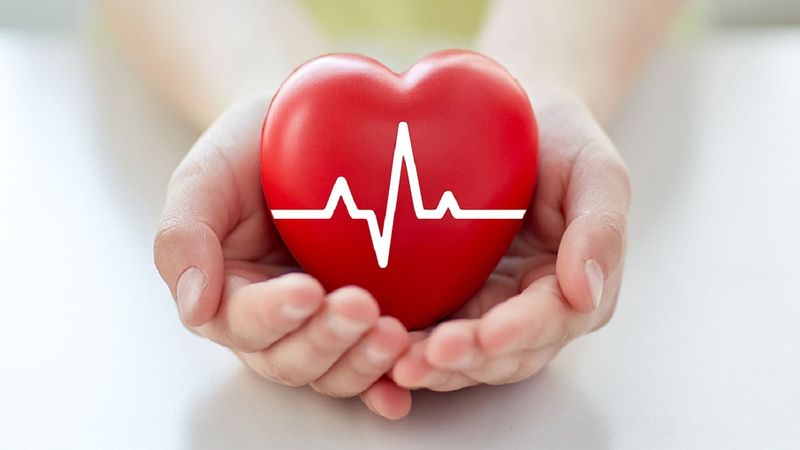Protein has a reputation for being the golden child of nutrition—fueling muscles, curbing hunger, and powering countless health goals. But more isn’t always better.
When your body takes in more protein than it can use, the effects can quietly build up, showing up in surprising ways. These subtle red flags might be your body’s way of saying, “enough is enough.”
1. Constant Bathroom Sprints

Your kidneys are screaming for mercy! When protein floods your system, your poor kidneys work overtime filtering out nitrogen waste products.
The result? You’re practically mapping bathroom locations everywhere you go. Left unchecked, this kidney strain can progress from mild dehydration to serious kidney damage.
2. Dragon Breath Disaster

Suddenly repelling everyone within conversation distance? Blame protein overload for your mouth’s newfound chemical weapon.
That unmistakable ammonia-like stench wafting from your mouth happens when your body switches to ketosis, burning protein instead of carbs. This isn’t garden-variety bad breath; it’s your body’s distress signal wrapped in an offensive odor package!
3. Sahara-Level Thirst

Water bottles have become your closest companions, yet satisfaction remains elusive. This isn’t ordinary thirst—it’s your body desperately compensating for protein’s dehydrating effects.
Metabolizing excess protein requires significant water, leaving your cells parched. The cruel irony? The more water you drink, the more frequently you’ll visit the bathroom, creating a frustrating cycle.
4. Mystery Weight Gain

Baffled by the scale’s upward climb despite your “healthy” protein-packed diet? The plot thickens when you realize those protein shakes and meat-heavy meals pack serious caloric punches.
Surprise! Your body stores excess protein as fat when it can’t use it for muscle repair. High-protein diets cause water retention that masquerades as fat gain, creating a puffy, bloated appearance that no amount of exercise seems to touch.
5. Bone-Deep Betrayal

Your skeleton is silently suffering! Excessive protein creates an acidic environment in your bloodstream, forcing your body to leach calcium from your bones to neutralize the acid.
This invisible robbery happens without warning signs until it’s too late. Research suggests protein fanatics face significantly higher fracture risks despite typically exercising more. Particularly alarming is how this affects women, who already face higher osteoporosis risks.
6. Brain Fog Blackout

Forgetting your keys again? That mental cloudiness isn’t just sleep deprivation—it’s your brain starving for carbohydrates! When protein dominates your diet, your brain’s preferred fuel source gets sidelined, leaving your neurons struggling to communicate.
The cognitive consequences hit hardest during complex tasks. You might manage basic functions while feeling increasingly frustrated at your inability to concentrate on demanding mental work.
7. Digestive System Rebellion

Your intestines have launched a full-scale mutiny! Without adequate fiber to balance all that protein, your digestive tract becomes a battleground of constipation, bloating, and unpredictable bathroom emergencies.
The heavy protein load sits in your gut like concrete, creating painful blockages. Gut bacteria diversity plummets on high-protein regimens, destroying your microbiome balance. Your digestive system wasn’t designed for this protein abuse!
8. Mood Swings From Hell

Snapping at loved ones for minor offenses? Your protein obsession might be turning you into a monster! The connection between excessive protein and mood disturbances stems from the carbohydrate deprivation that often accompanies protein-heavy diets.
Without sufficient carbs, serotonin production tanks, leaving you irritable, anxious, and emotionally volatile. Your brain’s neurotransmitter balance goes haywire when protein dominates your nutritional intake.
9. Wallet-Draining Addiction

Financial hemorrhaging might be your first clue of protein overconsumption! Premium protein sources—organic meats, designer supplements, specialty powders—command premium prices that devastate budgets.
The protein industry has masterfully convinced consumers that more expensive equals more effective. The financial damage extends beyond groceries. Before you know it, you’re justifying spending half your paycheck on fancy protein products while basic financial goals suffer!
10. Ammonia Sweat Stench

Gym buddies suddenly keeping their distance? Your sweat has transformed into a biological weapon! When protein consumption exceeds what your body can process, nitrogen waste products emerge through your skin as ammonia.
The result is a distinct cat-urine odor no deodorant can mask. This olfactory nightmare intensifies during exercise as increased sweating amplifies the ammonia concentration. Beyond the social embarrassment lies a serious warning sign that your kidneys and liver are struggling to process nitrogen waste.
11. Headache Hurricane

That skull-splitting pain isn’t just stress—it’s a protein-induced headache tornado! Excessive protein consumption triggers headaches through multiple mechanisms, including dehydration, blood sugar fluctuations, and amino acid imbalances affecting neurotransmitters.
These headaches have a distinctive quality: they often start at the back of your head and radiate forward, intensifying after protein-heavy meals. Unlike tension headaches, they respond poorly to standard pain relievers.
12. Hormonal Havoc

Your endocrine system is waving red flags! Protein excess disrupts the delicate hormonal balance regulating everything from metabolism to reproduction. Women particularly suffer as high-protein diets can trigger menstrual irregularities and exacerbate hormonal conditions.
Men aren’t immune either. Testosterone production becomes erratic with sustained protein overload, potentially affecting everything from muscle growth (ironically) to libido.
13. Heart Health Warning Bells

Your cardiovascular system is sending SOS signals! The connection between excessive animal protein and heart disease has flown under the radar while we’ve been distracted by fat and carb debates.
Red meat and certain protein supplements increase inflammatory markers directly linked to heart disease. Blood work reveals the damage before symptoms appear – elevated LDL cholesterol and inflammatory markers that puzzle doctors treating otherwise healthy-looking fitness enthusiasts.
14. Sleep Quality Nosedive

Staring at the ceiling at 3 AM again? Your protein obsession might be sabotaging your sleep! High protein consumption, especially near bedtime, forces your digestive system to work overtime when it should be resting.
The energy diverted to protein digestion disrupts your body’s natural sleep rhythms. The amino acid tyrosine, abundant in protein-rich foods, stimulates brain activity and alertness – exactly what you don’t need when trying to sleep.
15. Gout’s Excruciating Comeback

Feeling like your big toe is being stabbed with hot pokers? Welcome to gout – the aristocratic disease making a roaring comeback thanks to protein excess! This excruciatingly painful form of arthritis strikes when uric acid crystals form in joints, typically starting in the big toe.
High-protein diets, especially those rich in red meat and seafood, flood your system with purines that convert to uric acid. The pain is so distinctive that sufferers describe it as “walking on broken glass.”

